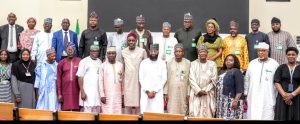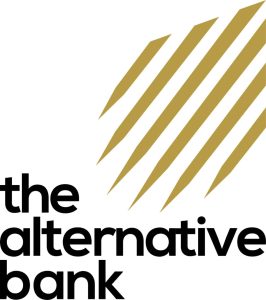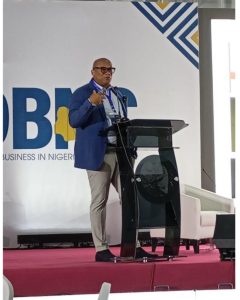CBN to deploy additional measures to strengthen buffers, insulate economy from global headwinds

Governor Central Bank of Nigeria Mr. Godwin Emefiele has said that the CBN “working with the fiscal authorities, will not hesitate to deploy additional measures to strengthen buffers and insulate the Nigerian economy from the global headwinds”.
Speaking at the CBN one day round table themed, “Going for Growth, held at the CBN, he said Notwithstanding our current measures aimed at supporting growth, our economy faces considerable challenges. GDP growth remains below our annual population growth rate at 2.6 per cent.
Second, our reliance on crude oil for more than 80 per cent of our foreign exchange earnings and 60 per cent of government revenues, means our economy is exposed to the impact of the coronavirus on crude oil prices.
Projected declines in revenues as occasioned by the drop in crude oil prices constrains the government’s ability to meet its infrastructure commitments in 2020, which is vital if we are to achieve double-digit growth. Given this challenge, it is imperative that this roundtable session comes up with well-structured funding models, that will mobilise funds from banks and other financial institutions to fund critical infrastructure projects, while providing attractive returns to investors.“We must also use this opportunity to consider funding for infrastructure projects that improve access to markets for farmers and SMEs, while also connecting the railways to our ports, in order to increase our non-oil exports. Such schemes will support greater economic growth and help free up funds for the government to focus on other priority objectives. Indeed, the current oil price shock validates some of the measures taken by the fiscal and monetary authorities on diversification of the Nigerian economy.
These measures, which have focused on improving domestic production of goods and services, particularly in the agriculture and manufacturing sectors, are necessary if we are to insulate our economy from volatilities in the crude oil market. We must build on the successes of these measures and reduce our dependence on excessive imports. Credit must go to President Muhammadu Buhari who has placed considerable emphasis on diversifying our economy away from its reliance on earnings from crude oil.
According to him “in the last 3 years, the Nigerian economy had remained on a positive growth path. GDP growth has remained in positive territory for the 11th consecutive quarter, following the 2016 – 2017 economic recession.
In the 4th quarter of 2019, GDP growth stood at 2.55 per cent, which is the highest rate of quarterly growth attained since 2016, surpassing the expectation of several analysts, who had predicted a 2.2 per cent growth.
For the year 2019, GDP growth stood at 2.27 per cent relative to negative 1.6 per cent in 2016, highlighting the impact of fiscal and monetary policy measures that have helped support growth in critical sectors of the Nigerian economy such as Agriculture, Industry, Oil and Gas, and ICT. One of the critical measures that helped to boost growth in 2019, was the impact of the Central Bank’s new minimum loan to deposit ratio, which was initially at 60 per cent, and subsequently raised to 65 per cent.
“We also imposed restriction on access to OMO auctions in order to encourage banks to lend to the real sector. Indeed, the Banking sector has responded positively with the rise in aggregate industry credit from N15.3 trillion, May 2019 to over N17.4 trillion in January 2020. I am aware that these loans have been granted to borrowers across different sectors at considerably lower rates.
Although a lot more still needs to be done; We intend to sustain these policy measures, as it will help support improved economic growth and create more employment opportunities. The impact of the coronavirus across over 100 countries, has affected global supply chains, as well as demand for goods and services. Commodity prices have also been affected, as crude oil prices have plummeted by over 45 per cent since January 2020. Early this year, the IMF had projected that global growth would rise to 3.3 per cent in 2020, up from 2.9 per cent in 2019.
However, with the onset of the virus, global growth is expected to decline in 2020, but the extent of the decline would depend on how the epidemic is contained over the next few months. Central Banks in key markets across the globe have responded by reducing policy rates in order to stimulate growth, while measures are being taken by fiscal authorities to build resilient buffers to contain the spread of the virus.
The CBN, fortunately, had already embarked on similar measures which have resulted in a significant reduction in lending rates, as part of our efforts to boost growth”.
He further said “I believe we can envision a vibrant economy in Nigeria that is less dependent on crude oil. Once upon a time in the sixties, our cities and rural communities were brimming with activities, as industries sprung up in Lagos, Kano, Kaduna, Onitsha and Aba, to mention a few. Rural dwellers supported increased cultivation and exports of cash crops such as cocoa, palm oil, and cotton. These activities enabled the creation of jobs for rural and urban dwellers while working to stem rural-urban migration.
“Our reliance on crude oil revenues beginning in the ’70s was the advent of our problems in Nigeria. Oil rose from 3 per cent of our total exports’ earnings in 1960 to over 90 per cent by 1976. Today, oil constitutes close to 80 per cent of our export earnings. Our dependence on oil exports contributed to the decline of our local industries as well as our agricultural sector, as it enabled an excessive reliance on the imports of goods and services”.
According to Emefiele “this reliance on imports contributed significantly to the challenges we now face in our agricultural and manufacturing sectors, but more importantly, it resulted in the loss of job opportunities for Nigerians. Our craze for imports of everything and anything supported factories, farms and the creation of jobs in other nations, while turning our industries into warehouses for these imported goods.
“Today, the current leadership under President Muhammadu Buhari is working to deal with high unemployment levels, as well as the smuggling and dumping of goods in Nigeria, by putting in place policies that support increased production of goods in Nigeria. Ladies and gentlemen, If we do not deal with these issues, the challenges of kidnapping and banditry would only fester, as those involved in these nefarious activities would only resort to these activities with intensity in the absence of job opportunities.
“Addressing domestic and external challenges to growth requires that we hear from critical stakeholders like you, who can generate great and workable ideas and solutions. We must all work together in order to harness the true potential of our nation. This one-day the roundtable session will address some of the measures needed to drive double-digit growth rate in Nigeria. These include improving productivity in the agriculture and manufacturing sectors. Second, how to develop funding models that would support improvements in the quality of our energy and transport infrastructure.
“Third, how Nigerians operating in the creative industries space, such as ICT, can expand and capture the value of their works, while creating jobs and generating export revenues for our nation. The findings generated from the roundtable session will be presented to the President at a dinner session later today.
“I encourage all of us to provide our inputs, as these will be vital in guiding the fiscal and monetary authorities on measures that could help in supporting greater growth of the Nigerian economy. We, therefore, look forward to a very exciting session, and I thank you once again for joining us today”.







